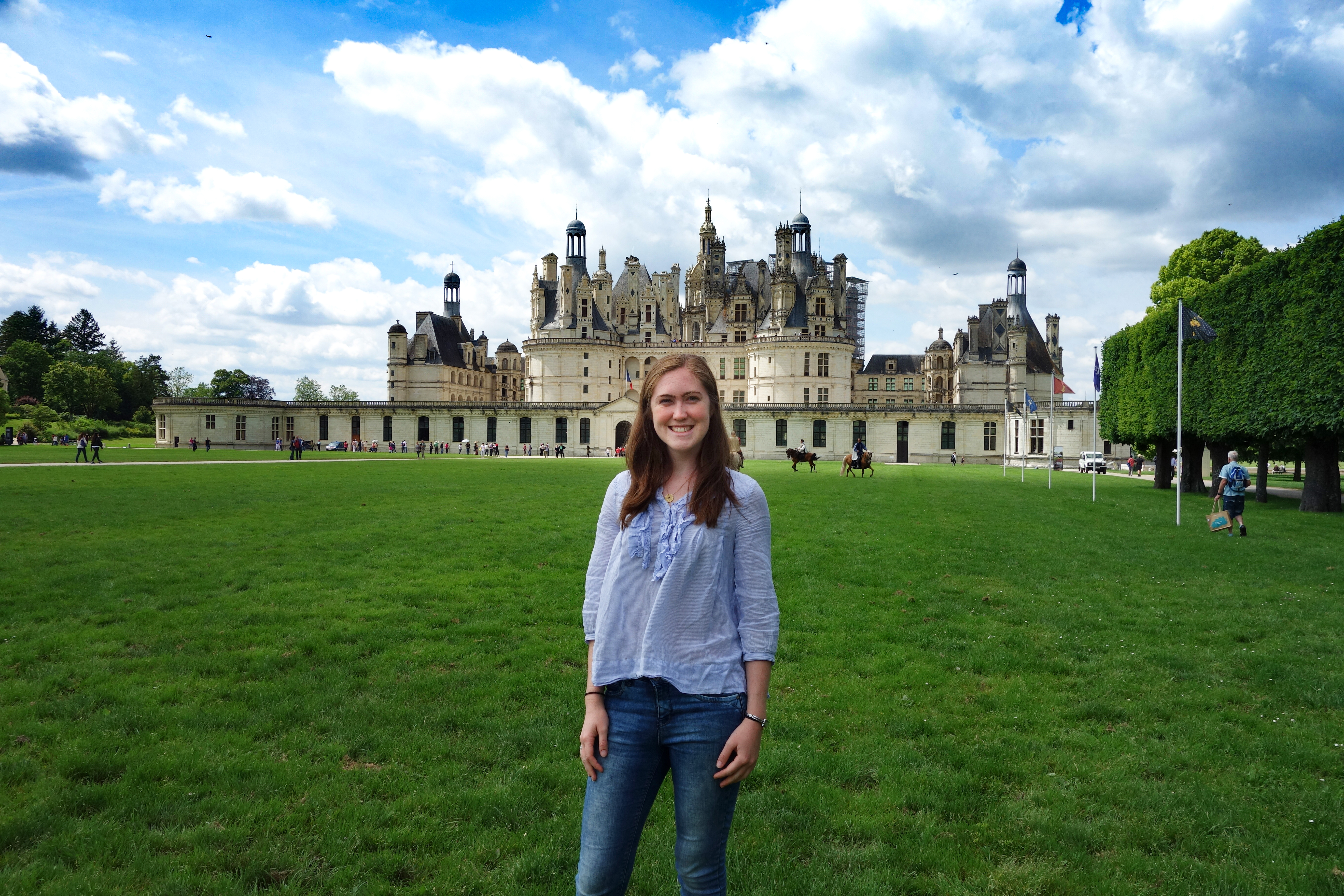What can you do with an Honours degree from the Faculty of Humanities and Social Sciences?
Our graduates end up all over the globe undertaking PhD's, working for governments, the private sector, non-for-profits, galleries, they go on to do teaching, researching, being project managers and undertaking many other roles! Having your Honours gives you a step up from the competition and opens you up to a world of opportunities.
Check out some of our graduates and be inspired to undertake 'One year. One extraordinary research experience'.
5. Lucy Endicott, BIntStudies (Hons) in French
 What was the best thing about your Honours program?
What was the best thing about your Honours program?
I really liked getting to know the other Honours students and being able to talk to each other about the challenges we were each facing. Doing an Honours thesis means spending a lot of time researching and writing by yourself, but it’s very important to have a support network around you who also knows exactly what you’re going through.
I also thought that the staff at the School of Languages and Cultures were fantastic and very supportive. My supervisor expertly guided me through the project proposal and thesis writing stages. The other faculty members, who also have a wealth of experience, provided helpful feedback and advice about the project during the Honours thesis presentations.
What advice would you give to those considering Honours?
Completing my Honours thesis in French – all 16,000 words – is still one of my greatest personal achievements. It was a challenge to grapple with concepts and then have to write about them in a second language, but in the end it was worth it. There was a point where I thought about writing the thesis in English, but I knew I wouldn’t be satisfied with myself if I did. I had dedicated so many years to learning French that I wanted to prove to myself that I was now up to the challenge of writing my thesis in French. I would encourage languages students to push themselves to the limits of their comfort zone, either in terms of language or topic. The satisfaction you get at the end of the project, knowing that you’ve pushed the boundaries of your comfort zone, is worth all the challenging moments along the way.
How did your study help you to get to your current role, and what does your current role involve?
All three of my degrees at UQ have helped prepare me for my current job as a teacher of French and Humanities in a high school. The undergraduate courses in French and History offered me the opportunity to study a broad range of topics in those fields. By doing Honours and completing my thesis in French, I significantly improved my French language skills. The Graduate Diploma in Education provided me with a solid foundation in all aspects of education which I have been able to build on since working in my current role as a teacher.
What did your study lead to?
My study lead to me getting a job as a teacher at a high-performing school. Learning French has also provided me the opportunity to live in France twice – once as part of a Study Abroad semester in Lyon, and then for a year as an English Language Assistant in Strasbourg. Having in-country experience helped me significantly when it came to writing my Honours thesis.
I am also strongly considering completing a PhD in the next few years. It was fascinating to gain new insights into languauge learning as a result of the research I did for my Honours thesis, and I would like to continue exploring and adding to research in that field.
What challenges have you came across in your career, and how did you overcome them?
Being a teacher means facing new challenges every day. My first year of teaching was extremely difficult with getting to know all my students, preparing classes and also trying to have some work-life balance. Initially I had the balance wrong because I was so focussed on getting all my work done. But at the end of the day, I wasn’t having any fun outside of work. Now, I believe that the quality of my work is better, partly because I have more experience as a teacher, but also because my brain isn’t being overloaded with work 24/7. Maintaining a healthy work-life balance has made a huge difference to the quality of my life. Taking a break, socialising with friends and family, and enjoying life is just as important as – and helps lead to – producing quality work.
Don’t be afraid to ask colleagues for advice or help. It’s likely that you’re not the first person to be faced with a particular issue or problem! I have found that talking to my colleagues has helped me grow as a teacher and also reassures me that I’m not alone in solving problems. It’s also been helpful to talk to early career colleagues. It can sometimes be hard if you compare yourself to experienced colleagues who seem to have their work all sorted out whilst you flounder trying to learn the ropes. Building professional relationships with other early career colleagues provides an opportunity for you to share successes, challenges and strategies with each other.
